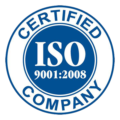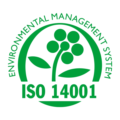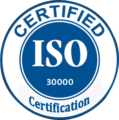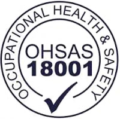| Description |
The ship dismantling sector is a sector which takes and dismantles ships which completed their economic life and provides the sale of all the dismantled parts which can be reused and contributes the national economy.
Also it contributes to reduce risks if we think about that ships with advanced technology and new tonnage were build instead of the dismantled ships.
According to the data in 2013, the world trade in the seas is around 86.492 vessels.
Statistically if we consider the environmental damages of ships over 15 years of age the ship dismantling sector is taken a natural place like the ship construction sector.
Beginning from 2011 starting to take single hull tankers gradually from sailing and by considering the age of the merchant fleets (average 24.5) a high-volume steel recycling of waste is becoming inevitable.
The main objective of the sector is the recycling of any kind of ship dismantling scrap, mineral and waste of the ship equipment.
It is theinverse procedure of Shipbuilding. During the dismantling of the vessel as scrap, metal materials are evaluated directly or sent to mill.
Ship Recycling converts scrap to valuable goods and recycles used natural resources.
On the other hand Ship Recycling holds its place between industries which protect the environment.
For the purpose of effective and efficient use of natural resources, scrap vessels will be dismantled and processed to obtain various products.
The Ship Recycling plays an active role in maintaining the ecological balance and IMO International Maritime Organization accepted it and it is also known as'' green industry''.
Comparing the iron ore extraction from the nature with smelting and rolling you can see that ship recycling provides huge energy and cost savings and less pollution.
The alternative for steel production from scrap ships is the produce this from iron ores. Pig iron is produced first in blast furnaces, later it will be converted to steel.
Three kinds of raw materials is used to produce pig iron in blast furnaces. These are Iron ore, coke and limestone. Each of the three raw materials are produced out of the furnaces above earth ground, this devastates the large earth.
Coke is produced out of converted coal with appropriate specifications.
Coke turns partly to carbondioxide and partly to iron carbide. But during the steel obtaining process of iron carbide, carbon dioxide is released to the atmosphere.
Producing steel out of scrap iron is considered as an environmentally friendly technology.
With the recycling of 1 ton steel and 1100 kg iron ore, 630 kilograms of coal and 55 kilograms limestone are saved.
If we look from the perspective of energy consumptionwe can see that the converting 1 ton hematite ore to pig iron consumes energy of 7400 mj. Melting 1 ton steel scrap consumes energy of 1350mj.After these processes 2200 kg CO2 is released to the atmosphere but with melting 1 ton scrap steel this releasement is only 280 kg.
For the preparation of electric energy, this amount will be reduced by increasing the use of natural energy sources,
When scrap steel is recycled 74% of energy, 90% of raw material resources are protected, 40% of water consumption is reduced, 76% in waste water pollution, 86% of air pollution, 97% of mining waste reduction was observed.more
|
“SOK DENIZCILIK TICARET LIMITED” is one of the major ship dismantling and recycling companies in Turkey. The company established and began the activities in Aliaga/Izmir back in 1991; one of the main industrial regions of Turkey where many steel mills are located together with other production units (cement factories, a petrochemical refinery, a power plant) as well as two large ports. Combining the dedication with the knowledge and experience gained in the past two decades has not just made the company stand out among it’s competitors but also leaded the local industry to the term of “ship recycling” rather than “ship breaking”.
The facility is spreaded over 40,050M2 area with a 100meters long shoreline. The main machinery inventory consists of 2 lattice boom cradle cranes with each110 metric tons capacity, 1 lattice boom cradle crane with 75 metric tons capacity, 1 field crane with 20 metric tons capacity, 2 excavators with each 145kN tear out capacity, 3 units of field loaders and 4 units of heavy rigged capstans each with pulling capacity of 600 metric tons. As a result of working with an experienced team and powerful equipment, the company reaches 6000 metric tons of monthly material production capacity.
Paying fanatical attention to details in every step of the projects made " SOK DENIZCILIK " a solution provider to many major ship owning companies( BOLUDA LINES, SUBSEA 7, MSC SHIPPING, HOEGH AUTOLINERS, ITALIAN STATE FERRY LINES AND ALLIANCA LINES ) for their ship recycling requirements. The company is also approved by the Environmental Agency of the U.K. by receiving a decommissioned ex Royal Navy frigate. After the arrival of " ATWOOD SOUTHERN CROSS " , a semi-submersible drilling rig, in the end of 2014 the company added offshore segment to it`s reputable track record of success.
Environmentally sound ship recycling and workforce health & safety is a paramount for “ SOK DENIZCILIK ”. The company has a zero tolerance policy about the subjects and fully complies with the requirements of both national and international legislations. A solid track record of worker safety is proving the company’s effective health and safety management plan & policy. In addition to having all required domestic licenses and permissions, " SOK DENIZCILIK " is also one of the first ship recycling companies certified for ISO-9001, ISO 14001, OHSAS 18001 and ISO-30000 by the ""LLYOD`s REGISTER " . The company is a proud member of "I.S.R.A." (International Ship Recyclers` Association). Upcoming developments and regulations related with the ship recycling industry are being followed very closely and it is a paramount for the company to be preapared and meet requirements even before they come into force.more
|
|










